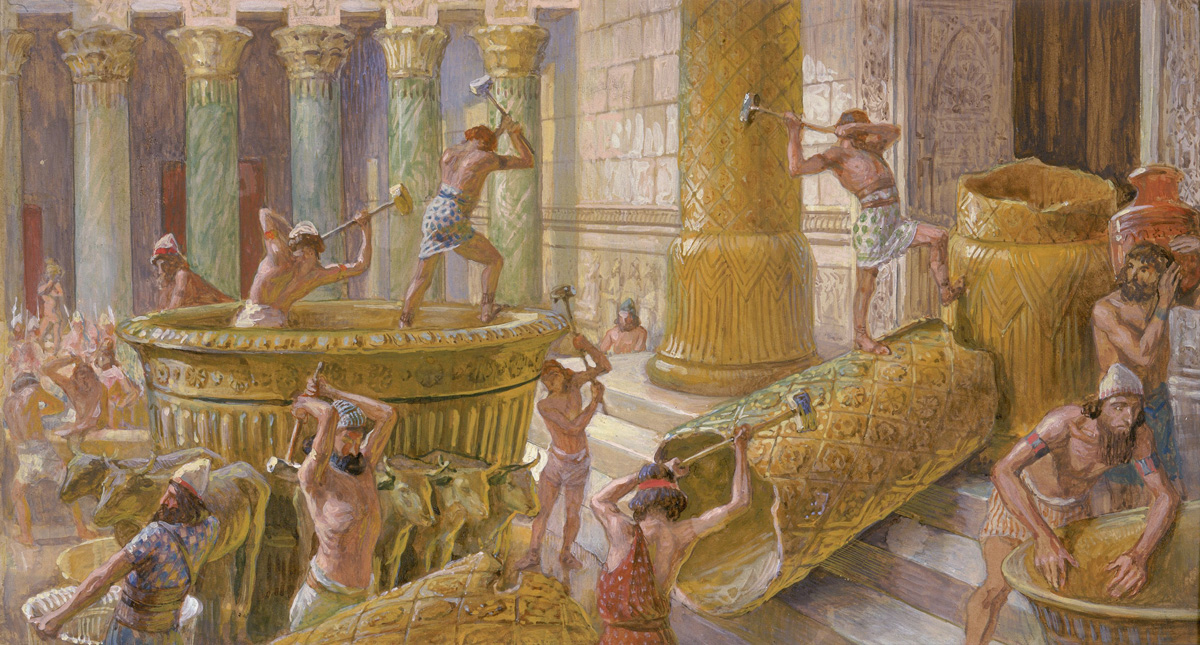Psalm 137
is an absolutely ghastly song of vengeance to be meted out upon innocent children, and yet, thanks to a 1970s hit song, has an implicit part in our culture. It is very much a song of two halves, and the second half is normally as avoided by preachers as it was by Boney M. (the singers of that song, for those too young to know it!)Therefore we will try to understand the whole psalm.
The historical context is that of the community who returned from Exile, a community who have returned to find that those they left behind have inter-married with other peoples, and that the homes and lands remembered in a blissful haze of nostalgia are actually in ruins. They are self-righteous and racist, 'purifying' the people by casting out the mixed race children and their non-Jewish parent.
They are not nice people, and it will repay us well if we remember that.

verse 1
Babylon was a city of numerous waterways. The Tigris and Euphrates rivers were linked by a variety of canals, so sitting alongside one would have been the common experience of the exiles. It was only to be expected that they would engage in the sharing of memories, and that children would learn their national history from their elders.
An Ulster Protestant I once met described the communities of Northern Ireland 'learning hatred at their grandmothers' knees, as they sing the ancient songs of conflict.' This probably expresses these informal 'sitting beside the waters' sessions fairly well.
verse 2
The musical instruments that would have a role in any normal social gathering are stilled, and hung on convenient branches to be picked up as people leave. There is no song sufficient to grasp the anguish of the people, and no tune suitable to accompany it.
verses 3 & 4
The Babylonians want amusement as the expense of their prisoners and, what is worse, they want to hear one of the sacred songs from the Temple. In the first place the psalms are only suitable for the land where God is present, and the Temple in which the divine presence was understood to dwell has been destroyed. In the second, singing would only deepen the wounds, since the words of the song would invite deeper mockery of a failed country with a failed deity.

verses 5 & 6
This cry of desolation can be heard in the voices of exiles and refugees across the globe. The agony of separation from the home of your ancestors, from the Temple where they worshipped and from the graves that go untended is palpable.
verse 7
Edom was regarded as an ethnically close nation (descendants of Esau, rather than of Jacob), and so the psalmist seems to think they have claim against them. Given how much Israel and Judah had made them suffer, it should have come as no surprise to see them on the enemy's side. Selective memory can be a very dangerous thing.
verses 8 & 9
The desire for vengeance is a very powerful motivator. That the act described was not uncommon when a city was taken (mothers then being taken as unencumbered slaves) does not make it any the more acceptable. We end in an orgy of murder, as though it made anything better.
How can we use this psalm?
A remarkably good question. We can use it to shine an uncomfortable light upon ourselves.It shows us that a people who regard themselves as in some manner 'special' can easily ignore or degrade the rights of another, and thereby degrade themselves. It reminds us of the evils of runaway patriotism, and the extremities to which it can lead.
Dr Johnson remarked that 'patriotism is the last refuge of the scoundrel', and he had a point.
It reminds us that vengeance leads to nothing but a cycle of human tragedy.
Can we use the first part, without using the second?
Certainly. At the cost of honesty.
I shall move to a new topic after this, since there is little else to look at in terms of psalms with a specific historical context. My thanks to Roy, who encouraged this course of study.
Stay safe, and stay well,
Ali (Rev Alistair Jones)
Comments
Post a Comment